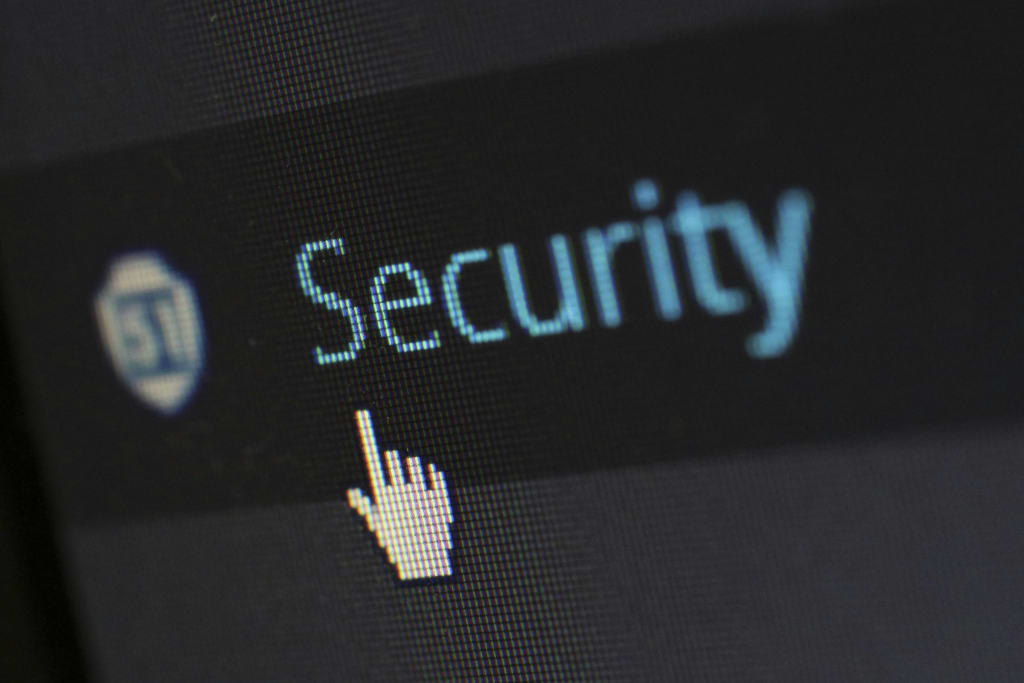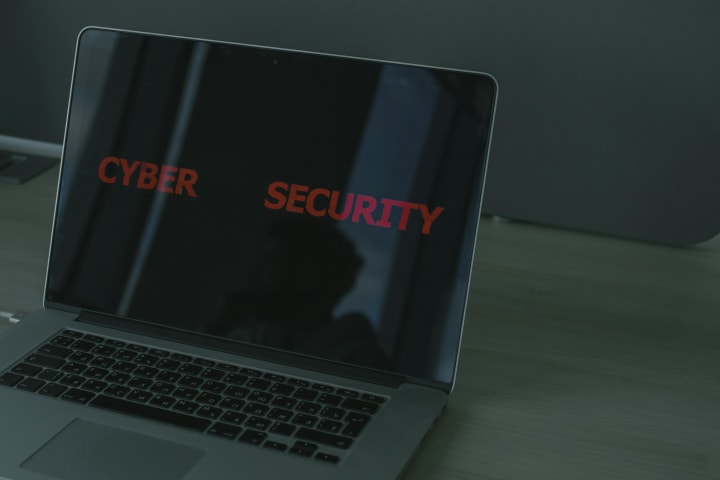Personal Data Protection: Cybersecurity Tips Online
"Guarding Your Digital Identity in an Interconnected World"

As we stroll down the bustling streets of our digital city, our personal data becomes our most valuable possession. Like a priceless artwork, it requires meticulous care and protection from the ever-watchful eyes of cybercriminals. In today's interconnected world, where our daily lives are woven into the fabric of online platforms, safeguarding our sensitive information has become a top priority.
In this comprehensive guide, we'll explore practical strategies and cybersecurity tips to secure your personal data and maintain your online privacy. From the importance of data security and the perils of identity theft to the latest cyber threats and the significance of internet safety, we'll delve into the essential aspects of protecting your digital wellbeing.
By mastering the art of password management, leveraging antivirus software, and shielding yourself from phishing scams, you'll be empowered to navigate the digital landscape with confidence. Join us as we unravel the complexities of network security and empower you to safeguard your personal data in the ever-evolving digital frontier.

Key Takeaways
Prioritize cybersecurity to protect your personal data in the digital age.
Understand the importance of online privacy and the risks of data breaches.
Implement strong and unique passwords, and enable two-factor authentication for your accounts.
Keep your software and operating systems up-to-date to address security vulnerabilities.
Be cautious of phishing attempts and limit the personal information you share on social media.
Use secure payment methods and verify website security when conducting online transactions.
Enhance your network security by using a VPN and configuring your router settings.
Understanding the Importance of Online Privacy
In today's digital landscape, our personal data has become increasingly vulnerable to cyber threats. The proliferation of cyber threats, such as hacking, phishing, and malware, has made it increasingly challenging to maintain the privacy and security of our sensitive information. As we rely more on online platforms for our daily activities, it's crucial to prioritize cybersecurity and take proactive measures to protect our personal data.
The Rise of Cyber Threats
The digital age has brought forth a multitude of cyber threats that pose a constant risk to our online privacy and data security. Cybercriminals have become increasingly sophisticated in their tactics, employing a wide range of techniques, from hacking and phishing to malware and ransomware, to compromise our sensitive information.
Understanding the Importance of Online Privacy
In today's digital landscape, our personal data has become increasingly vulnerable to cyber threats. The proliferation of cyber threats, such as hacking, phishing, and malware, has made it increasingly challenging to maintain the privacy and security of our sensitive information. As we rely more on online platforms for our daily activities, it's crucial to prioritize cybersecurity and take proactive measures to protect our personal data.
The Rise of Cyber Threats
The digital age has brought forth a multitude of cyber threats that pose a constant risk to our online privacy and data security. Cybercriminals have become increasingly sophisticated in their tactics, employing a wide range of techniques, from hacking and phishing to malware and ransomware, to compromise our sensitive information.
The Consequences of a Data Breach
The consequences of a data breach can be severe, leading to identity theft, financial losses, and reputational damage. When our personal information, such as our names, addresses, or financial details, falls into the wrong hands, it can be exploited for malicious purposes, causing lasting harm to our digital well-being.
Understanding the gravity of these cyber threats and the importance of online privacy is crucial in developing an effective cybersecurity strategy. By staying informed and proactive, we can take steps to safeguard our personal data and navigate the digital landscape with confidence.
Cybersecurity tips for protecting personal data online
Protecting your personal data online requires a multifaceted approach, and implementing cybersecurity best practices is essential. One of the most fundamental steps is to use strong and unique passwords for all your online accounts. Avoid using common or easily guessable passwords, and instead, opt for a combination of letters, numbers, and special characters.
Use Strong and Unique Passwords
Using strong and unique passwords is a crucial measure in safeguarding your personal data online. Cybercriminals often rely on guessing or cracking weak passwords to gain unauthorized access to your accounts. By creating complex passwords that include a mix of uppercase and lowercase letters, numbers, and symbols, you can significantly increase the level of protection for your sensitive information.

Enable Two-Factor Authentication
Additionally, enable two-factor authentication (2FA) whenever possible, as this adds an extra layer of security to your accounts, making it more difficult for unauthorized individuals to gain access. Two-factor authentication requires you to provide a secondary form of verification, such as a one-time code sent to your mobile device or a biometric scan, in addition to your password. This extra step helps to prevent cybercriminals from accessing your accounts, even if they have managed to obtain your login credentials.
Securing Your Online Accounts
Protecting your personal data online goes beyond just using strong passwords and enabling two-factor authentication. To further secure your online accounts, it's essential to keep your software and operating systems up-to-date. These updates often include critical security patches that address vulnerabilities and safeguard against emerging cybersecurity threats, such as malware and data breaches.
Update Software and Operating Systems Regularly
Regularly updating your software, including web browsers, productivity tools, and your operating system, is a crucial step in maintaining online account security. These updates not only introduce new features but also address security vulnerabilities that could be exploited by cybercriminals. Ensure that your devices are configured to automatically install these updates to minimize the risk of your accounts being compromised.
Be Cautious of Phishing Attempts
Another common tactic used by cybercriminals to gain access to your online accounts is phishing. Phishing scams involve sending fraudulent emails, text messages, or social media messages that appear to be from legitimate sources, such as your bank or a trusted company. These messages often attempt to lure you into providing your login credentials or other sensitive information. Be vigilant in identifying suspicious communications, and never provide personal information unless you can verify the legitimacy of the request.
By regularly updating your software and operating systems, as well as being cautious of phishing attempts, you can significantly enhance the security of your online accounts and protect your personal data from potential cybersecurity threats.

Protecting Your Personal Information
In the digital age, our personal information, such as our names, addresses, phone numbers, and dates of birth, has become increasingly vulnerable to identity theft and other malicious activities. To safeguard our personal data protection, we must be mindful of how we share this sensitive information, particularly on social media platforms.
Limit Sharing on Social Media
One of the most effective ways to protect our personal information is to carefully curate what we share on social media. We should limit the amount of personal details we post publicly and regularly review our privacy settings to ensure that only our trusted connections can access our information. By maintaining a more selective approach to social media sharing, we can significantly reduce the risk of our personal data being compromised and misused by cybercriminals.
In addition to limiting our social media presence, we should also be cautious about sharing our personal information in other online settings. Whenever possible, we should avoid disclosing sensitive details unless it is absolutely necessary, and we should always verify the legitimacy of the entity requesting the information. By taking these proactive steps, we can enhance our online privacy and protect our personal data from potential threats.
Safeguarding Your Online Transactions
As we increasingly rely on online platforms for our financial activities, safeguarding our online transactions becomes paramount. By employing secure payment methods and verifying website security, we can protect our sensitive financial data and ensure a safe and reliable online experience.
Use Secure Payment Methods
When engaging in online transactions, such as shopping or banking, it's crucial to utilize secure payment methods that offer additional layers of protection against fraud and unauthorized access. Credit cards and digital wallets, like Apple Pay or Google Pay, are excellent options as they often include robust security features, including encryption and tokenization, to safeguard our financial information.
Verify Website Security
Before entering any sensitive information, it's essential to verify the security of the website you're using. Look for the "https://" prefix in the URL, which indicates a secure connection, and check for a valid SSL/TLS certificate. These security measures help ensure that your online transactions and financial data are protected from potential website security breaches and unauthorized access.

Enhancing Your Network Security
Your home or office network can also be a potential entry point for cyber threats, so it's essential to enhance its security. One effective way to do this is by using a virtual private network (VPN), which encrypts your internet traffic and helps protect your online activities from prying eyes. Additionally, ensuring that your router settings are properly configured can further bolster your network security and internet safety.
Use a Virtual Private Network (VPN)
A VPN is a powerful tool that can significantly improve your online privacy and security. By establishing an encrypted connection between your device and the VPN server, all your internet traffic is shielded from unauthorized access, making it much harder for hackers or snoopers to intercept your data. This is particularly important when using public Wi-Fi networks, which can be susceptible to various cyber threats.
Configure Your Router Settings
Your home or office router is the gateway to your network, and it's crucial to ensure that its settings are properly configured to enhance network security. Start by enabling encryption, such as WPA2 or WPA3, to protect your wireless connections from unauthorized access. Additionally, disable remote access to your router, which can prevent potential intruders from gaining control of your network. Finally, regularly update your router's firmware to address any known security vulnerabilities and ensure you're taking advantage of the latest security features.
Router Security Settings & Benefits
Enable Encryption (WPA2/WPA3): Secures wireless connections and prevents unauthorized access
Disable Remote Access: Reduces the risk of remote attacks on your network
Update Firmware Regularly: Addresses security vulnerabilities and ensures the latest security features
By implementing these......
network security
measures, including the use of a VPN and proper router configuration, you can significantly enhance the overall security of your home or office network, protecting your devices and online activities from a wide range of cyber threats.
Staying Vigilant Against Cyber Threats
Despite our best efforts to safeguard our personal data, cyber threats can still evolve and find new ways to compromise our sensitive information. Maintaining a proactive and vigilant approach is crucial in this ever-changing digital landscape. Two key strategies we can employ to stay ahead of these threats are regularly backing up our data and being cautious when using public Wi-Fi networks.
Regularly Back Up Your Data
One of the most effective ways to protect ourselves against cyber threats, such as data loss or ransomware attacks, is to regularly back up our important data. Whether it's stored locally on our devices or in the cloud, this simple yet crucial step can ensure that we can quickly recover our files in the event of an unforeseen incident. By implementing a comprehensive data backup strategy, we can significantly reduce the impact of any potential cyber threats and safeguard our valuable information.
Be Wary of Public Wi-Fi Networks
Public Wi-Fi networks, while convenient, can also be vulnerable to eavesdropping and other cyber attacks. Whenever possible, we should avoid conducting sensitive activities, such as online banking or accessing confidential information, on these public networks. Instead, consider using a virtual private network (VPN) to encrypt our internet traffic and protect our online activities from prying eyes. By being cautious and mindful of the risks associated with public Wi-Fi, we can significantly enhance our overall cybersecurity best practices and protect ourselves from potential cyber threats.
Educating Yourself and Your Family
In the ever-evolving landscape of cybersecurity, staying informed and proactive is crucial for protecting our personal data and online safety. As we navigate the digital world, it's essential to make cybersecurity education a priority for ourselves and our loved ones.
Stay Updated on Cybersecurity News
Make a habit of regularly reading cybersecurity news and industry reports to stay up-to-date on emerging cyber threats, security vulnerabilities, and effective cybersecurity best practices. This will help you anticipate potential risks and adopt timely countermeasures to safeguard your personal data and online privacy.
Teach Children Online Safety Practices
Educating our children on online safety practices is paramount in the digital age. Teach them how to identify phishing attempts, manage their digital footprint, and understand the importance of protecting their personal information. Empower them to become responsible and cyber-aware digital citizens, equipping them with the knowledge and skills to navigate the online world safely.
By staying informed and educating ourselves and our families, we can cultivate a culture of cybersecurity awareness and proactively mitigate the risks posed by cyber threats. Together, we can ensure that our personal data and online activities remain secure, safeguarding our digital well-being for years to come.
Conclusion
In conclusion, protecting your personal data online requires a multi-layered approach that combines technical measures, behavioral changes, and continuous learning. By implementing the cybersecurity tips outlined in this guide, such as using strong passwords, enabling two-factor authentication, updating software, and being cautious of online threats, we can significantly enhance the security of our personal information and online activities.
Remember, cybersecurity is an ongoing process, and staying vigilant, informed, and proactive is the key to safeguarding our digital well-being. As we navigate the ever-evolving online privacy landscape, it's crucial to embrace these best practices and empower ourselves and our families to traverse the digital world with confidence and peace of mind.
By following the personal data protection strategies discussed in this comprehensive guide, we can take control of our online privacy and minimize the risks posed by cyber threats. Let us continue to stay informed, adapt to new challenges, and champion the importance of cybersecurity within our personal and professional spheres.
About the Creator
Arun S
I am a dedicated and hardworking individual, driven by a passion for excellence in everything I do. With a natural flair for talent and a keen eye for detail, I constantly strive to bring out the best in myself and others.
Enjoyed the story? Support the Creator.
Subscribe for free to receive all their stories in your feed. You could also pledge your support or give them a one-off tip, letting them know you appreciate their work.





Comments
There are no comments for this story
Be the first to respond and start the conversation.